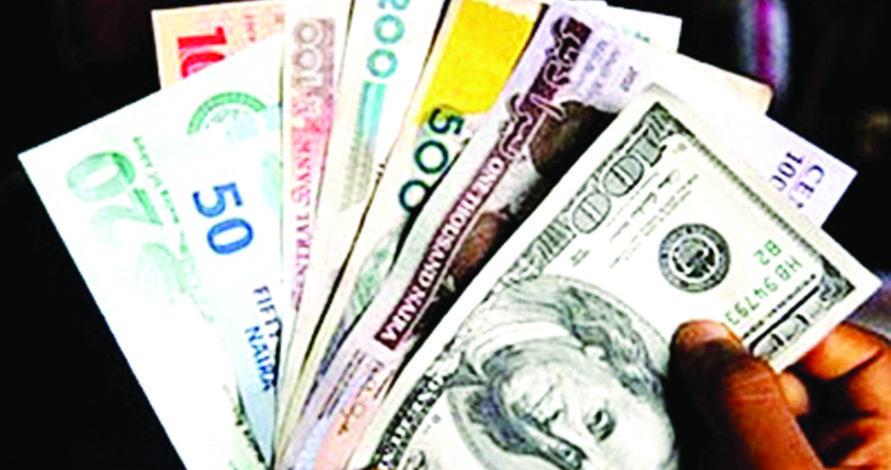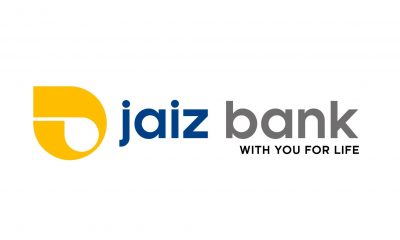Economy
NGX All-Share Index Crosses 90,000-point Barrier After 2.38% Gain

By Dipo Olowookere
Trading activities on the floor of the Nigerian Exchange (NGX) Limited ended on a positive note, as the market further improved by 2.38 per cent on the back of continued confidence in local equities.
At the close of business, the All-Share Index (ASI) shattered the 90,000-point barrier after it increased by 2,092.88 points during the trading session, closing at 90,063.25 points compared with the previous day’s 87,970.37 points.
In the same vein, the market capitalisation, which measures the total value of stocks on the NGX, increased by N1.145 trillion yesterday to settle at N49.284 trillion versus Tuesday’s closing value of N48.139 trillion.
The stock exchange witnessed a pocket of profit-taking, especially in the banking space, which weakened its index by 3.26 per cent.
However, this did not affect the outcome of the market when trading activities were brought to an end by 2:30 pm.
This was because bargain-hunting activities in the other sectors were intense, with the industrial goods sector growing by 8.76 per cent. The insurance index appreciated by 3.63 per cent, the consumer goods counter boomed by 1.92 per cent, and the energy sector rose by 0.45 per cent.
Business Post reports that it was a busy day for the NGX in the midweek session as investors transacted more shares, with the trading volume, value, and the number of deals increasing by 18.18 per cent, 1.86 per cent, and 17.77 per cent, respectively.
A total of 1.3 billion shares worth N16.4 billion exchanged hands in 17,471 deals yesterday, compared with the 1.1 billion shares worth N16.1 billion traded in 14,835 deals a day earlier.
Sterling Holdings finished as the most active stock after it traded 106.1 million units worth N800.3 million, Japaul sold 101.1 million units for N268.8 million, Transcorp transacted 90.5 million units valued at N1.6 billion, Jaiz Bank traded 83.1 million units worth N321.5 million, and Unity Bank exchanged 73.4 million units worth N237.7 million.
Investor sentiment remained bullish on Wednesday as the bourse closed with 48 price gainers and 35 price losers, implying a positive market breadth index.
Guinness Nigeria, Honeywell Flour, AIICO Insurance, Wema Bank, and Sunu Assurances gained 10.00 per cent each to finish at N71.50, N4.84, N1.54, N11.66, and N1.76 apiece.
On the flip side, RT Briscoe suffered the heaviest loss after it shed 10.00 per cent to trade at 81 Kobo, Dangote Sugar depreciated by 9.95 per cent to N73.30, NGX Group weakened by 9.84 per cent to N22.90, Red Star Express lost 9.47 per cent to settle at N4.11, and Sterling Holdings went down by 9.09 per cent to N6.90.
Economy
NASD Unlisted Security Index Climbs 0.88%

By Adedapo Adesanya
The NASD Over-the-Counter (OTC) Securities Exchange maintained its upward trajectory with a further 0.88 per cent rise on Wednesday, March 3.
The expansion increased the NASD Unlisted Security Index (NSI) by 36.94 points to 4,256.41 points from 4,219.47 points, and lifted the market capitalisation by N22.10 billion to N2.546 trillion from Tuesday’s N2.524 trillion.
The six price gainers were responsible for the growth achieved by the unlisted securities market yesterday, with MRS Oil Plc adding N20.00 to trade at N230.00 per unit versus the previous day’s N210.00 per share.
Further, FrieslandCampina Wamco Nigeria Plc surged by N11.07 to N128.83 per share from N117.76 per share, Lagos Building Investment Company (LBIC) Plc grew by 37 Kobo to N4.12 per unit from N3.75 per unit, First Trust Mortgage Bank Plc advanced by 19 Kobo to N2.11 per share from N1.92 per share, Acorn Petroleum Plc rose by 1 Kobo to sell at N18.75 per unit versus the preceding day’s N18.74 per unit, and Acorn Petroleum Plc also gained 1 Kobo rise to sell at N1.35 per share versus N1.34 per share.
It was observed that two securities were in red at midweek, with Central Securities Clearing System (CSCS) Plc down by N1.56 to N82.59 per unit from N84.05 per unit, and Industrial and General Insurance (IGI) Plc down by 2 Kobo to 47 Kobo per share from 49 Kobo per share.
Yesterday, the volume of trades went up by 86.2 per cent to 2.6 million units from 1.4 million units, but the value of transactions deflated by 31.4 per cent to N64.1 million from N93.4 million, and the number of deals declined by 22.0 per cent to 46 deals from 59 deals.
CSCS Plc remained the most traded stock by value (year-to-date) with 36.4 million units valued at N2.2 billion, trailed by Okitipupa Plc with 6.3 million units traded for N1.1 billion, and Geo-Fluids Plc with 122.8 million units transacted for N480.4 million.
Resourcery Plc ended the day as the most traded stock by volume (year-to-date) with 1.05 billion units sold for N408.7 million, followed by Geo-Fluids Plc with 122.8 million units traded for N480.4 million, and CSCS Plc with 36.4 million units worth N2.2 billion.
Economy
Naira Falls to N1,387/$ at Official Market, N1,390/$1 at Parallel Market

By Adedapo Adesanya
For the 11th straight trading session, the Naira closed lower against the United States Dollar in the Nigerian Autonomous Foreign Exchange Market (NAFEX) on Wednesday, March 4.
At the official market, it lost N2.80 or 0.2 per cent against the greenback to close at N1,387.09/$1, i contrast to the N1,384.29/$1 it was traded a day earlier.
It also depreciated against the Pound Sterling in the same market window at midweek by N12.88 to quote at N1,855.10/£1 versus Tuesday’s rate of N1,842.22/£1, and weakened against the Euro by N9.08 to N1,615.27/€1 from N1,606.19/€1.
The Nigerian Naira depreciated against the US Dollar yesterday at the GTBank forex counter by N12 to sell for N1,385/$1 compared with the previous day’s N1,373/$1, and tumbled by N5 in the parallel market to close at N1,390/$1 compared with the preceding day’s N1,385/$1.
The exchange rate has been trending downward for almost two weeks, though it has been resistant to being in panic mode because it is still within its projected N1,350 to N1,450 per Dollar band.
Nigeria’s gross external reserves climbed to $49.693 billion from $49.604 billion, based on the latest data from the Central Bank of Nigeria (CBN).
Meanwhile, the cryptocurrency market recovered after weeks of consolidation, but traders remain divided over whether the move marks a genuine breakout or another trap for late buyers.
Analysts have pointed to heavy overhead supply and positioning in derivatives markets as potential risks, with some suggesting a rally could only attract sellers rather than confirm a sustained recovery.
Dogecoin (DOGE) gained 8.3 per cent to trade at $0.0962, Ethereum (ETH) appreciated by 7.9 per cent to $2,122.87, Bitcoin (BTC) added 6.3 per cent to sell for $72,438.50, Solana (SOL) improved by 6.2 per cent to $90.37, and Cardano (ADA) jumped 5.1 per cent to $0.2733.
Further, Ripple (XRP) rose by 4.9 per cent to $1.41, Binance Coin (BNB) soared by 3.2 per cent to $652.64, and Litecoin (LTC) surged by 2.7 per cent to $56.09, while the US Dollar Tether (USDT) and the US Dollar Coin (USDC) traded flat at $1.00 each.
Economy
Crude Oil Steady Despite Rising Iran War Risks, Shipping Disruption

By Adedapo Adesanya
Crude oil prices were largely unchanged on Wednesday as escalating US and Israel strikes against Iran widened regional tensions and halted shipping through the Strait of Hormuz.
Brent crude was at $81.40 per barrel, while the US West Texas Intermediate (WTI) crude gained 10 cents or 0.1 per cent to trade at $74.66 per barrel.
Despite not much movement in midweek, analysts say prices remain elevated as markets grapple with the prospect of a prolonged war and lingering supply disruptions.
The US government has signalled a four- to five-week campaign, but Iran is seeking to regionalise the conflict, and the crucial Strait of Hormuz chokepoint is effectively shut.
The New York Times reported that operatives from Iran’s Ministry of Intelligence signalled openness to the US Central Intelligence Agency to talks on ending the war.
On Wednesday, US Defence Secretary Pete Hegseth said America was winning the war against Iran and that the US military could fight as long as needed.
While all other options are being explored, forces from both the US and Israel have struck targets across Iran, prompting Iranian retaliatory strikes against energy infrastructure in a region that accounts for just under a third of global oil production.
Iraq, the second-largest crude producer in the Organisation of the Petroleum Exporting Countries (OPEC), has cut output by nearly 1.5 million barrels a day due to storage limits and the lack of an export route.
The US said it was working on plans to secure the Strait of Hormuz to ensure safety for oil tankers amid the war with Iran.
President Donald Trump on Tuesday said the country’s Navy could begin escorting oil tankers through the strait if necessary. He added that he had ordered the US International Development Finance Corporation to provide political risk insurance and financial guarantees for maritime trade in the Gulf.
Meanwhile, countries and companies have begun seeking alternative routes and supplies of crude. India and Indonesia said they were looking for other supplies, while some Chinese refineries were shutting or moving up maintenance plans.
The Energy Information Administration (EIA) said on Wednesday that crude stocks rose by 3.5 million barrels in the last week to their highest in three and a half years.
-

 Feature/OPED6 years ago
Feature/OPED6 years agoDavos was Different this year
-
Travel/Tourism10 years ago
Lagos Seals Western Lodge Hotel In Ikorodu
-

 Showbiz3 years ago
Showbiz3 years agoEstranged Lover Releases Videos of Empress Njamah Bathing
-

 Banking8 years ago
Banking8 years agoSort Codes of GTBank Branches in Nigeria
-

 Economy3 years ago
Economy3 years agoSubsidy Removal: CNG at N130 Per Litre Cheaper Than Petrol—IPMAN
-

 Banking3 years ago
Banking3 years agoSort Codes of UBA Branches in Nigeria
-

 Banking3 years ago
Banking3 years agoFirst Bank Announces Planned Downtime
-

 Sports3 years ago
Sports3 years agoHighest Paid Nigerian Footballer – How Much Do Nigerian Footballers Earn






















